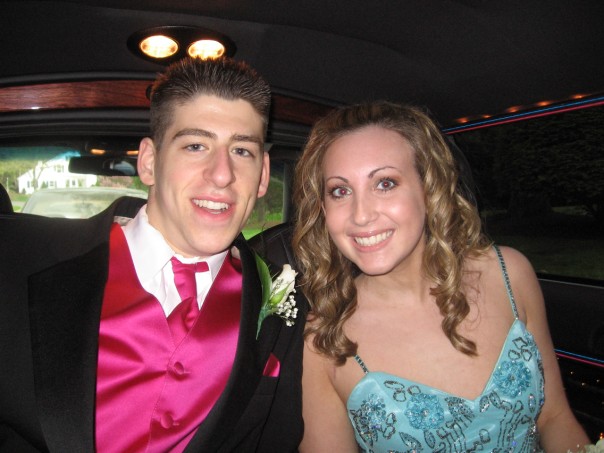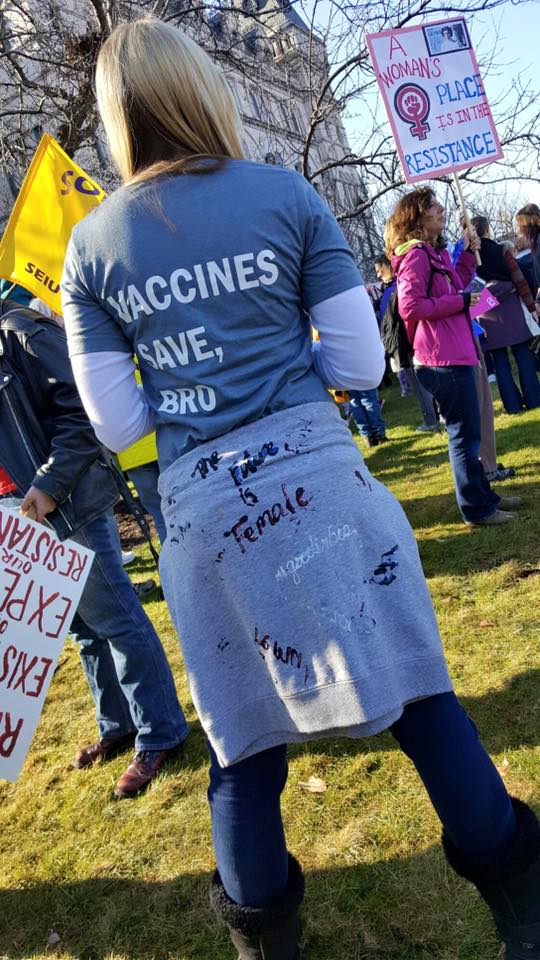Francesca
A Meningitis Story
Place of Residence: Cheshire, Connecticut
At 17 years old, Francesca was a healthy, active athlete with exciting plans for college. That all changed quickly when she contracted bacterial meningitis. She was hospitalized for three weeks, including two weeks spent in a coma. After her illness, she had to learn how to walk again and underwent years of rehabilitation to regain her independence. Now, she advocates for strong immunization policies and helps educate others through speaking engagements and workshops.
Francesca shares her story of meningitis in her own words, and how that illness has impacted her life.
At age 17 when you became ill with meningitis, how would you describe yourself at that time?
I was an outgoing, social teenager that always loved staying busy with friends and family. I was a competitive swimmer on a college scholarship when I contracted bacterial meningitis in my senior year of high school. I loved spending time in the pool, hanging out with my friends, and planning for our senior prom by going dress shopping. I was involved in theatre productions and performance groups as well.

Did you have any medical conditions prior to your illness?
I did have asthma prior to contracting bacterial meningitis. It was not until after my diagnosis that we learned I had an immune complement deficiency that put me at risk of contracting the disease. Immune complement deficiency refers to when a person lacks certain proteins that help protect against infection.
How did you first become sick and when did you and your family realize it was serious?
Shortly after the Easter holiday, I came down with a high fever and body aches. My fever rose to 104 degrees Fahrenheit, and I began having trouble moving my neck and body. I went to my primary care doctor who immediately diagnosed me with influenza (flu) without further testing and sent me home. Within hours I began hallucinating with a stabbing pain in my head and neck. The next morning my mother was unable to wake me and the ambulance was called. By this time, I had purple spots all over my body and remained unconscious.
How did your illness progress?
My disease progressed rapidly. When I arrived at the hospital by ambulance, I was still unconscious and immediately the emergency room staff knew it was serious. The dark purple rash was a sign of septicemia (a serious bloodstream infection) and the doctors conducted two spinal taps.
When the doctors feared it might be meningitis, I was airlifted to Yale New Haven Hospital for further treatment. During this time, I was in critical condition.
What happened in the hospital?
Upon arriving at Yale, I was given a 20% chance of survival. I tested positive for bacterial meningitis that had invaded my bloodstream. I remained in a coma for about two weeks in the hospital until the antibiotics finally began to work and I awoke from the coma. I remained hospitalized for another week and was then able to return home.
Had you been vaccinated for meningitis?
I was not vaccinated when I contracted bacterial meningitis. At the time, the vaccine was commonly thought of as a college vaccine and I was only months away from my college physical where I would have received the vaccine.
Do you suffer any long-term impacts from having meningitis as a teenager?
To this day I still suffer with hearing and vision loss as well as severe migraines and cognitive dysfunction. I had to relearn how to walk and the rehabilitation alone took years just to allow me to function as I had before my illness.

I would recommend talking with your child's healthcare provider about staying up to date with these vaccines so that no family has to go through what mine did.
What do you want others to know about meningitis? What advice would you give them?
I always recommend that everyone should be vaccinated against meningitis. I didn’t realize this until after my illness, but it’s important to know that there are different strains of meningitis – and there are different vaccines available to protect against these different strains (MenACWY and MenB).
What have you done to help raise awareness about the importance of vaccination?
I have been actively involved with the National Meningitis Association providing advocacy talks and workshops at various venues around the country. I also advocate strongly for legislative change in my home state and recently helped to pass the removal of the religious vaccine exemption in Connecticut.
Francesca shares her story as a way to help educate others and hopefully prevent other families from having a similar experience.
BECOME A VACCINE ADVOCATE
There are lots of ways you can make a difference in your community.

